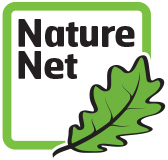What is Nature Connections bus funding
Nature Connections encourages thematically-related field trips to Nature Net sites. This program offers transportation assistance and helps make students’ field trips more meaningful through experiences that build upon each other. Connected field trip topics and experiences can support and enrich in-class curricula and create a continuous learning experience.
Below are some suggestions for topically-related field trip sequences. These suggestions, however, are only a beginning. Let your imagination and classroom needs dictate your Nature Connection. Call or e-mail with your unique ideas, we’re happy to discuss with you.
It is recommended that these sequences of two or more field trips be scheduled on separate days or at different times of the school year; this allows time to integrate the experiences into your curriculum.
Examples of Nature Connections field trips (partial list)
- Visit the pioneer log cabin at the Madison Children’s Museum and then learn about maple syruping at Aldo Leopold Nature Center or the MacKenzie Center.
- Study tropical plants at Olbrich Gardens, then discover the similarities and differences in native plants at the UW Arboretum.
- See and learn about threatened exotic animal species at Vilas Zoo, then see and learn about threatened native animal species at MacKenzie Center.
- Study geology at the UW Geology Museum, then compare natural geology and habitats at School Forest or Bethel Horizons Nature Center (non-glaciated area), with those at Owen Conservation Park or UW Arboretum (glaciated area).
- Compare water quality experiments in the wetlands of a Madison Conservation Parks, Cherokee Marsh, and the Aldo Leopold Nature Center.
- Explore Wisconsin native habitats at UW Arboretum, then study their animal inhabitants at Vilas Zoo or MacKenzie Environmental Center.
- Compare the various prairie and wetlands restoration techniques and land management efforts at the UW Arboretum, Dane County Parks, Madison Conservation Parks, and School Forest.
- Identify birds and their sounds at the UW Arboretum or Cherokee Marsh, then identify cranes at the International Crane Foundation.
- Study different gardening techniques at Olbrich Gardens, Community GroundWorks at Troy Gardens, and Madison Children’s Museum.
- Listen to night sounds and observe the night sky during an overnight trip to MacKenzie Environmental Education Center, then compare the day and night sounds and sights in Dane County Parks, Madison Conservation Parks, UW Arboretum, or Aldo Leopold Nature Center.
Find out where you can make a Nature Connection.
Nature Connections Application
[contact-form-7 id=”11835″ title=”Nature Connections Updated 2020″]
